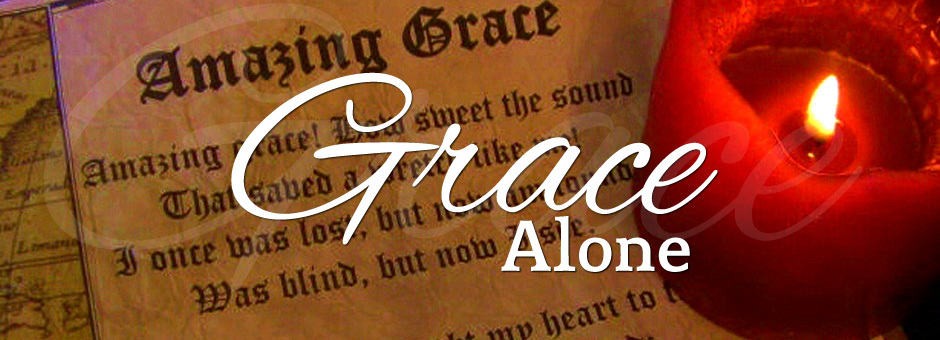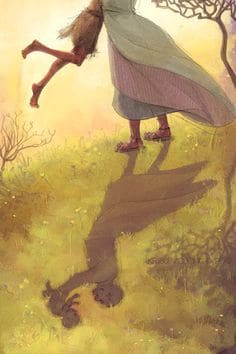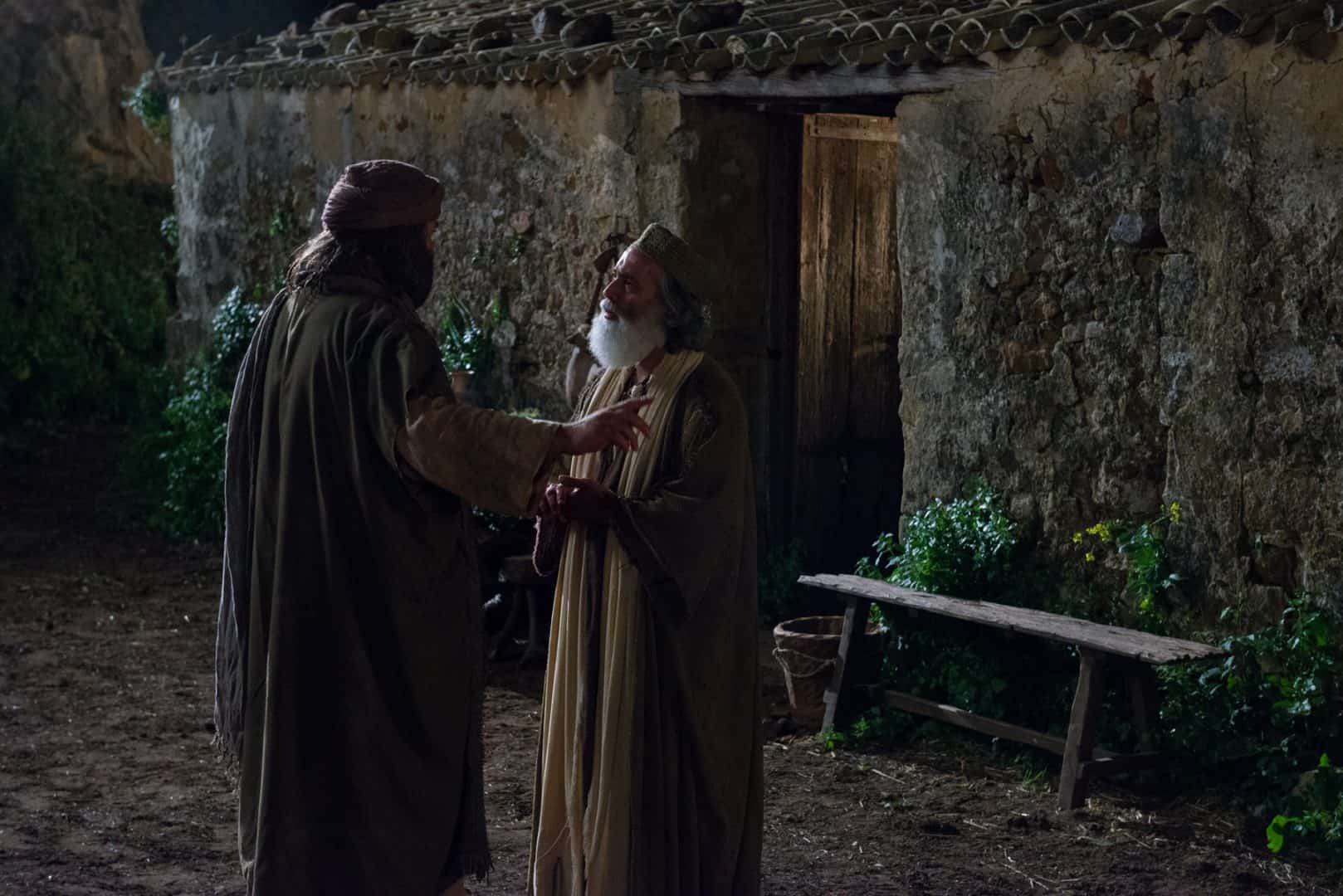
You can read the previous sermons in this series by following these links: Christ Alone and Scripture Alone.
A sermon by Rev Richard Keith on Luke 15 and Ephesians 2 on Sunday 22 April 2018.
Our message today is about grace. Grace is the undeserved kindness of God. Grace is his mercy and love. It surrounds us and sustains us. By his grace, God made us, and made our planet to be our perfect home. By his grace, we have air to breathe, water to drink and food to eat. By his grace, we have family and friends, a roof over our heads, work to provide for ourselves, and rest to renew us.
But God’s grace is most clearly seen in our salvation. God made us for himself. But we rejected that destiny and purpose, and chose to live instead for ourselves. We became lost. We became blind. God made us for life, but we chose death instead. But God sent his Son Jesus Christ to raise us to life, to open our eyes to the truth and to lead us home. In Christ we are saved. We did not save ourselves. We did not stretch up on our tippy toes and reach out to God. He reached down to us in Christ. We did not find God, while we were looking for him. He found us in Christ, while we were looking after ourselves. When we deserved nothing but God’s judgment and wrath, we found mercy and forgiveness. We are saved by Christ alone by God’s grace alone.
We see the grace of God illustrated in Luke chapter 15, in what is often called the parable of the prodigal son, the spendthrift son, the wasteful son. But there are two sons in this story who are both wasting their lives. We see the grace of God, for example, in the fact that the youngest son had something to waste in the first place. He went to his father and said to him, “Gee, dad, it’s a shame you’re not dead yet, because then half of all this would be mine. Can I have it in advance?” And he carried off a sack of money. But what did he ever do to deserve it? All this money that he goes on to waste on wining and dining. How is it that this young fool is the son of a prosperous farmer? He could have been born the son of a poor man with nothing. He could have been born the son of a fool who had lost all his money. If he’d then gone to his father and asked for half of everything, he would have ended up with half of nothing.
What has he done to walk off with so much money, to be born the son of a man who is worth so much that even half can buy six months of paradise? He has done nothing. The sack of money he wastes is not his, but his father’s.
This fact, this truth reveals to us the real sinfulness of sin. When we sin, when we rebel against our creator, when we fall short of the glory for which we were made, we are not wasting our gifts, we are wasting God’s gifts. We think we are such self-made people. We think that everything we have is the result of our own hard work. But the truth is that every cent we have, every square inch of land we possess, every breath we take is a gift from our creator. And when we invest them in our own selfishness, we are not wasting what belongs to us. But what belongs to God.
We see the grace of God at work in the pigsty. What does the young man remember in his misery? He remembers his father’s generosity. The farmer he works for cares for his pigs more than his workers. But his father’s workers have more than enough, because his father lavishes them with his kindness. And what fuels the young man’s long journey home, half-naked, bare-footed, half-starved before he started, let alone his miserable condition as he staggers the last miles? What drives him to keep going, when others would have collapsed on the way? When others would have given up short of home? His confidence that his father will provide.
He doesn’t deserve it. He knows it. That’s the whole point of his little speech:
“Father, I have sinned against God and against you. I am no longer worthy to be called your son. Make me like one of your workers.”
He doesn’t deserve even that. He deserves to find the farm gate shut against him. He deserves to have the dogs set off after him. But he knows, he trusts that if he can only look his father in his eye, there will be food and shelter at the end of his journey.
This is faith. The kind of faith that creates this change of heart, that evokes this heart felt confession, that expresses itself in this genuine repentance, and that never gives up until it is satisfied. This is faith. And faith trusts in the father’s grace, his inexhaustible generosity, his undeserved kindness.
Faith trusts in the grace of God. It does not trust in its own ability, because it is all too aware of its own crippling inability. Faith isn’t a little work that we can do to please God, when we can’t do anything else to please him. Faith isn’t like stopping short of the high jump bar that is set too high and asking God to bring it down so we can jump over a little height with our little faith. No, faith is the absence of any work. Faith doesn’t come to God with its own little work to offer him in the place of the big work that he demands but which is beyond us. Faith comes to God with empty hands. Faith is the admission that it has no work at all to please God, and that trusts instead in his amazing grace.
We see the grace of God in the foolish young man’s arrival home, where he receives even more than he asks for. All he wanted was to be treated like one of the workers, who are paid according to what they do. But his father didn’t even let him finish his speech. Instead, he ran to his son, forgetting his own age and his dignity, meeting him outside the farm gate, ordering his servants to fetch the best robe and rings for his fingers and shoes for his feet, giving instructions for a feast.

What his father is doing, instead of making him one of the workers, is treating him like family, like the son he was when he’d turned his back on his family. His son is unworthy, but to his father he is not worthless, and the father invites him in to the joy and light and music and dancing of the feast. Because his son was lost, but he found him. He thought he was dead, but he has him back safe and sound.
This is the grace of God in our salvation. Christ gave himself for us, he rose to life for us, he was exalted to heaven for us, not just that we might exist, but that we might live. Not just that we might work as slaves in the kingdom, and get by from the scraps from the master’s feast, but that we might be children, heirs of the kingdom, sitting as the sons and daughters at our Father’s feast. For we are unworthy, but we are not worthless, and Christ shed his precious blood, not just that we might be forgiven, but that we might be fully transformed into his likeness, sharing his suffering, so that we might share his inheritance. So that all the father’s glory may be ours.
We see the grace of God in the end of the story. Because the younger son is not the only one wasting his father’s gifts. But the older son imagines that he is slaving in the hot sun in the fields, and for what? Well, it all comes to a head when he returns from his work and hears the dreaded sound of music and dancing. People are having fun and enjoying themselves, while he’s been working his fingers to the bone. It isn’t right. It isn’t fair. And he would rather sit outside in the cold and dark.

But just as the father went outside the farm gate to welcome his younger son, he leaves the light and goes out into the dark. He leaves the warmth and goes out into the cold to welcome his elder son. “You’ve never given me anything,” the young man complains to his father. “Not even a little party just for me and my friends. But when this son of yours,” – notice that? Not my brother, but your son – “When this son of yours comes home, you put on a feast.”
The father reminds him, “Everything I have is yours.” The young man imagines that he is working for a master and getting no wages. What’s the point? Where’s the profit? he complains. And he has forgotten that he is a son in the family and that everything he sees, every blade of grass, every square inch of land, is his. Not because he has earned it or deserved it. It has not been reckoned to him as his wages for services rendered. Instead, it is his by grace. “Come into the light,” says the father. “Come into the warmth, come into the music and dancing, come into the feast where you belong. You have to come in, because your brother was lost and we found him. He was dead, and we have him home safe and sound.”
You see, some of you are like the elder son, and some of you are like the younger son. Some of you play by the rules and try to earn your keep. Some of you don’t even know the rules and you have wasted life’s rich gifts on yourself. But both sons lost their way. The younger son ended up in the pigsty. The elder son ended up slaving in the fields. Neither of them living as their father’s sons. One of them squandered his inheritance. The other was blind to it, couldn’t see it, because he wouldn’t open his eyes. But the father came out to both of them.
In the birth and life and death of Jesus Christ, your heavenly Father has come out to you, to meet you outside the farm gate in your pigsty, to meet you outside the feast in your cold and dark. He reminds you that however you have acted, you are still his child. Unworthy, but not worthless. And he invites you, he summons you by his grace to his feast in his kingdom where by grace you belong.
As Paul puts it in his letter to the Ephesians, you were dead in your sin, we all gratified the craving of our sinful nature, we were all by nature objects of wrath. But God is rich in mercy, and because of his great love for us, he made us alive with Christ. God raised us up with Christ, and seated us in the heavenly realms, so that he might show the incomparable riches of his grace. It is by grace you have been saved, through faith, and this not from yourselves, even your faith is the gift of God. But you are not saved by works so that no one can boast. For we are God creation, made in Christ to do the good works which God prepared in advance for us to do.
We are saved by grace alone. It is the grace of God poured out to us in Christ alone and received by faith alone. Not by good works, but for good works done for the glory of God alone, and not for ours. To resist this grace is sin and rebellion. To deny this grace is to condemn yourself to death and judgment. To accept this grace in Christ by faith is to embrace Christ and all that he is, and to receive his life and joy and peace. By his grace, your heavenly Father invites you, he summons you to leave your pigsty, to leave the hot fields where you imagine you are slaving, and come into the feast of his kingdom.
Because life’s great question is not whether you will live after you die, because for good or ill you will, but whether you will live before you die.
Life’s great question is not whether you will live after you die, because for good or ill you will, but whether you will live before you die.

Trackbacks/Pingbacks